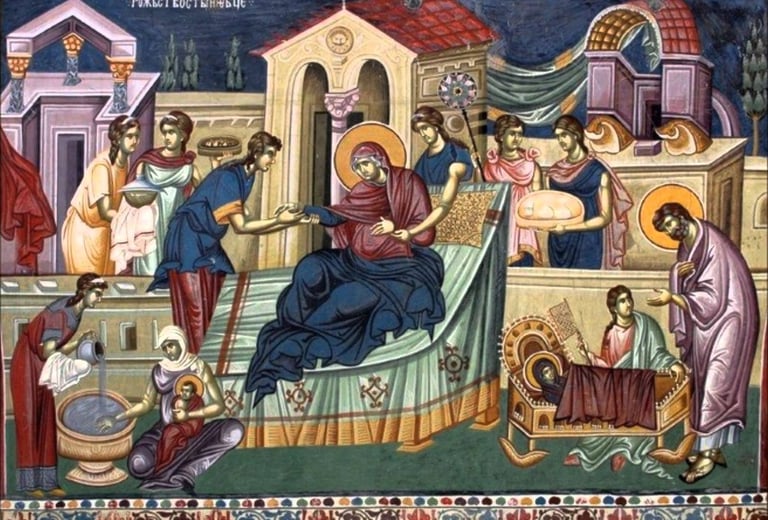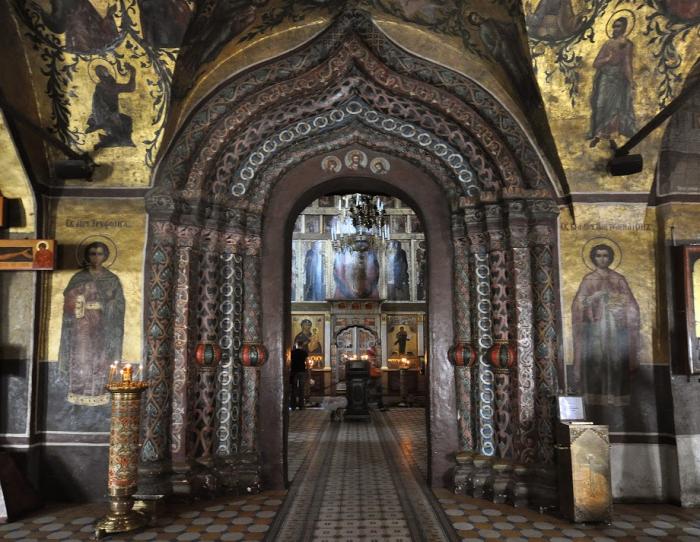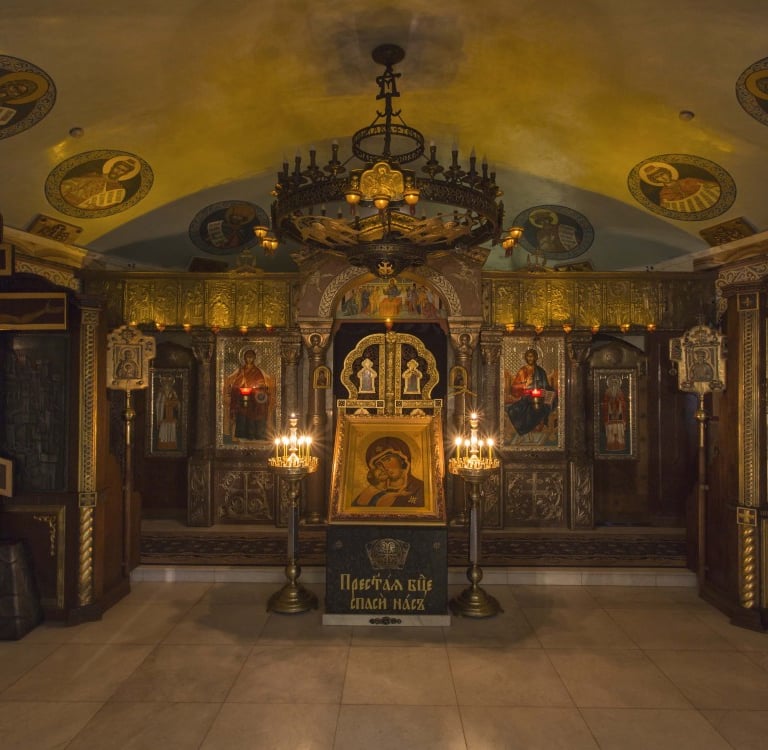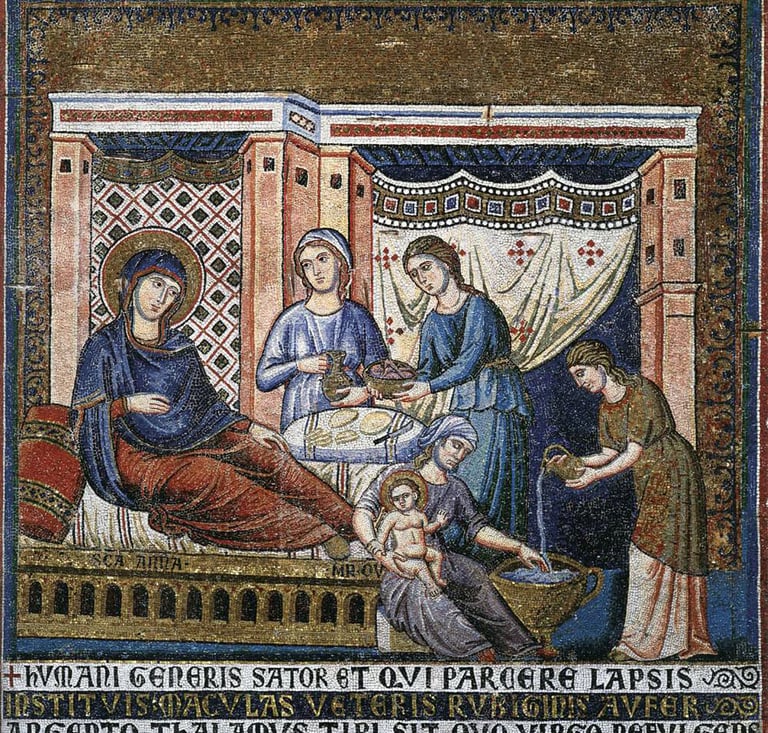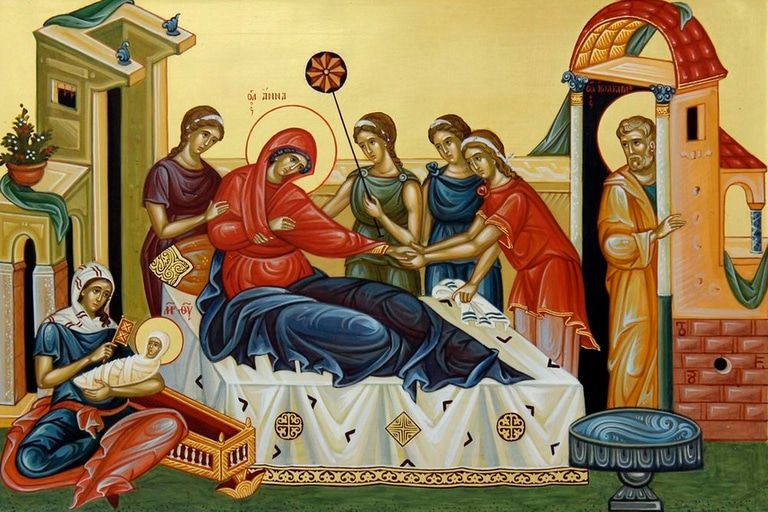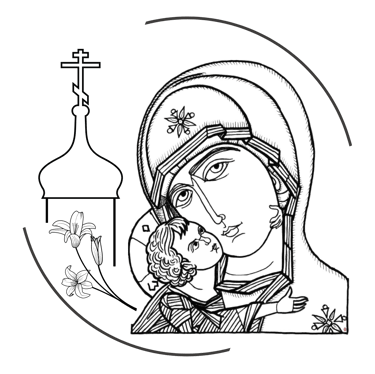The Nativity of the Most-Holy Theotokos
our Nativity, O Virgin, has proclaimed joy to the whole universe! The Sun of Righteousness, Christ our God, has shone from you, O Theotokos!
By annulling the curse, He bestowed a blessing. By destroying death, He has granted us eternal life.
The first Feast of the Liturgical Year is the Birth of the Virgin Mary
The first Great Feast to fall in the Church Year is the Nativity of the Most-Holy Theotokos. It is a momentous occasion that marks the beginning of the new religious year for all Orthodox Christians. On this day, believers gather to honor and venerate Mary, the Theotokos and Mother of God, who serves as the highest example of human holiness in the Orthodox Church. The birth of the Most-Blessed Virgin, predestined by Divine Providence to bring about the mystical Incarnation of God the Word, fills the hearts of the faithful with universal joy and awe.
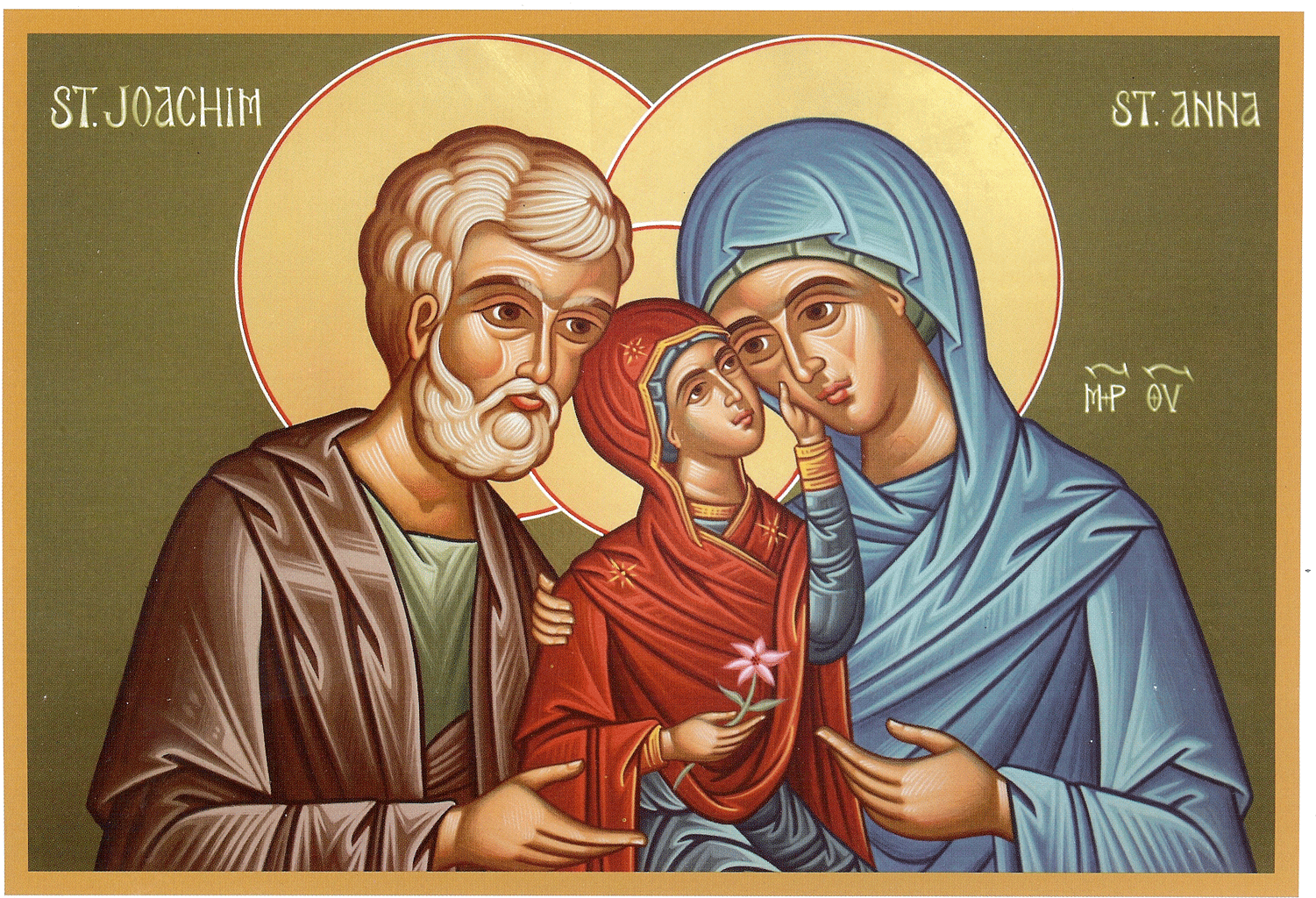

During the Vespers service, the first Old Testament Reading (Gen. 28:10-17) recounts the dream of Jacob, one of the revered Old Testament Patriarchs, when he fled from his brother Esau's anger. In his dream, Jacob saw a ladder stretching from earth to heaven, with angels ascending and descending upon it. When he awoke, Jacob anointed the stone he had slept on with oil and named it Bethel, meaning "house of God." In a profound spiritual parallel, the Most-Pure Mother of God is likened to the ladder between heaven and earth, as she unites these two realms within her sacred womb. Like Bethel, she becomes the house of God and the gate of heaven (Gen. 28:17), for she carried God Himself within her.
The birth of the Most-Holy Theotokos is a remarkable event that unfolded in a specific manner. Her father, the Righteous Joachim, traced his lineage back to King David, to whom God had made the promise that the Savior of the world would come from his descendants. Her mother, the Righteous Anna, was the daughter of Matthan and belonged to the tribe of Aaron through her father and the tribe of Judah through her mother. The couple resided in Nazareth of Galilee.
Joachim and Anna faced the sorrow of childlessness throughout their lives, which was particularly distressing as they grew older. In that era, being without children was considered a disgrace, leading to scorn and mockery. However, they never complained or lost faith in God's plan. Instead, they fervently beseeched Him, placing their trust humbly in His Will.
During a significant Feast, Joachim traveled to Jerusalem to offer a sacrifice to God in the Temple. But the priest refused to accept his offering, deeming a childless man unworthy to bring a sacrifice. This rejection deeply wounded Joachim, who regarded himself as a sinful individual among men. Consequently, he chose not to return home and sought solace in a deserted place of solitude. Upon learning of her husband's humiliation, Anna began fasting and earnestly prayed to God, pleading for the gift of a child. Meanwhile, Joachim also retreated to the wilderness, engaging in fasting and prayer for the same purpose.
Their fervent prayers did not go unanswered. The angel Gabriel appeared to Joachim and Anna, delivering the news that they would be blessed with a daughter, whom the entire human race would regard as blessed. Acting upon the Heavenly Messenger's instructions, Joachim and Anna returned to Jerusalem. True to God's promise, they welcomed a daughter into the world and named her Mary.
Mary, the Most-Holy Virgin, was a paragon of purity and virtue, surpassing not only all men but even the angels. She manifested herself as the Living Temple, the vessel through which Christ entered the world, bringing salvation to our souls. The Nativity of the Mother of God served as a prelude to the fulfillment of God's great and comforting promise regarding the redemption of humanity from the enslavement of the devil. Revealed as a merciful Intercessor, the Mother of the First-Born of all Creation, Mary became the perpetual source of solace and assistance for all who seek her aid.
Monasteries and mosaics in honor of the Nativity of the Blessed Virgin Mary
